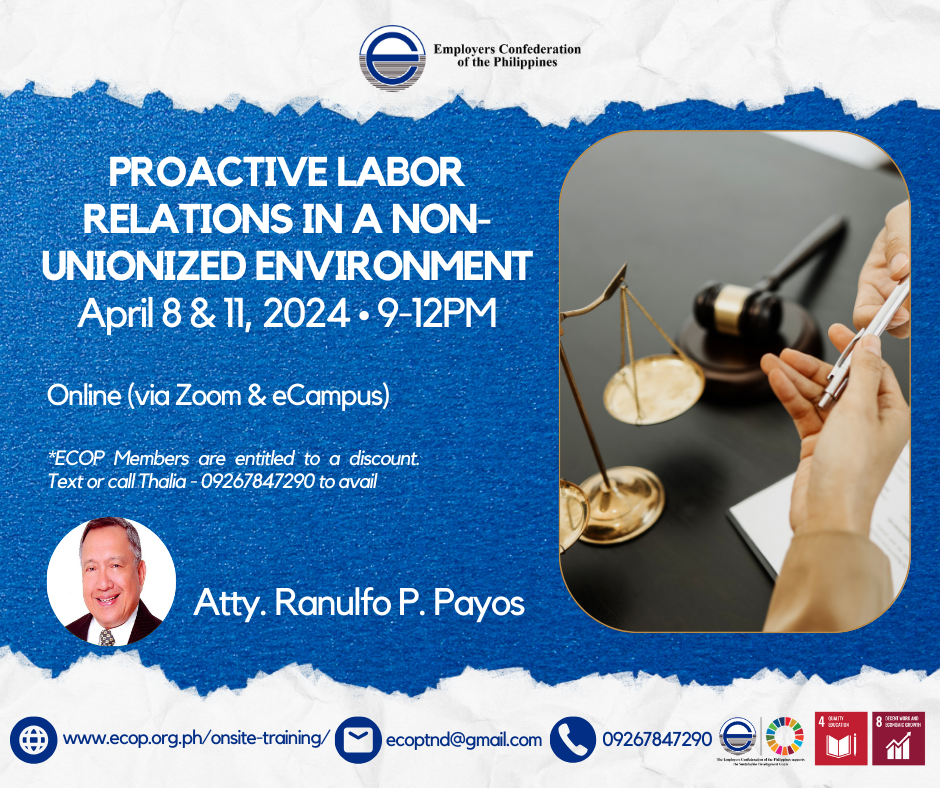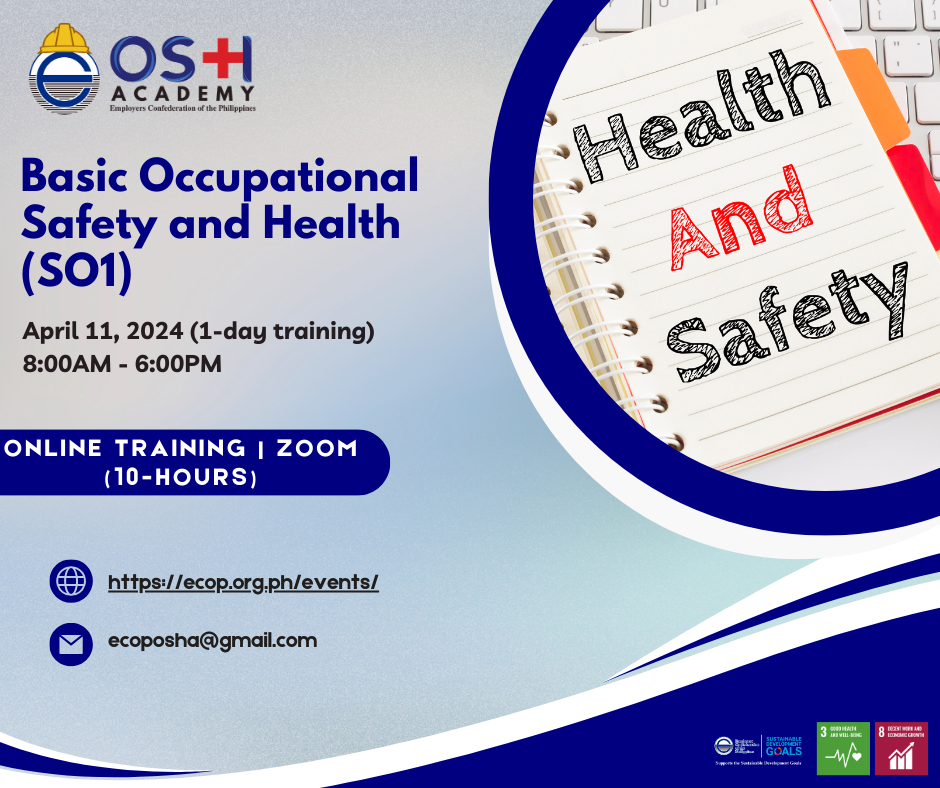The House of Representatives and the Senate have approved the proposed Occupational Safety and Health Standards Act (OSHS) which would strengthen compliance with occupational safety and health standards. This would be a consolidation of House Bill No. 64 and Senate Bill No. 1317 to amend the Labor Code of the Philippines.
The Bill seeks to prevent fatal accidents, disabling injuries and occupational diseases in the workplace by providing administrative and criminal penalties for violation or non-compliance with OSHS.
One of the salient provisions of the said Bill is the imposition of an administrative fine of Php 100,000.00 per day of non-correction of OSH standards violation, counted from the date when the employer or contractor is notified of the violation or the date the compliance order is duly served on the employer. It also provides for imprisonment of not less than one (1) year to twelve (12) years, at the discretion of the court, as the case may be.
ECOP finds these provisions worrisome and a cause of concern as the Bill fails to take into account the realities of the Philippine labor market which is characterized by a tight formal sector and a large informal sector that is estimated to consist of 36.13 million workers in 2016.
On the other hand, the formal sector is mostly constituted of micro and small establishments, comprising of 907,750 establishments which is 99.13% of the total number of registered establishments in the Philippines.
These enterprises are generally short on capital and technology and rely mainly on human skills and resources to produce their goods and services. This means that about 99% of the establishments in the formal sector will most likely not be able to afford the cost of OSHS compliance.
ECOP further submits that these excessive fines, especially if imposed on MSME employers is violative of Sec. 19 of the Bill of Rights of the Constitution which prohibits the imposition of excessive fines.
On the same note, implementing the proposed penal sanctions of the Bill which includes imprisonment would be counterproductive and destructive. By doing so, the MSME employer not only loses his business but his employees lose their jobs as well.








